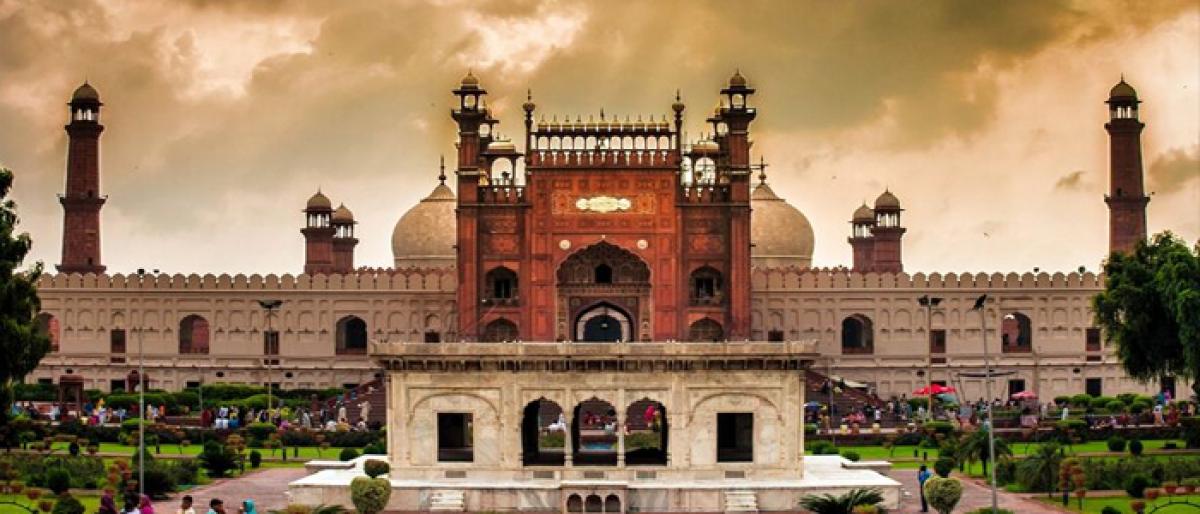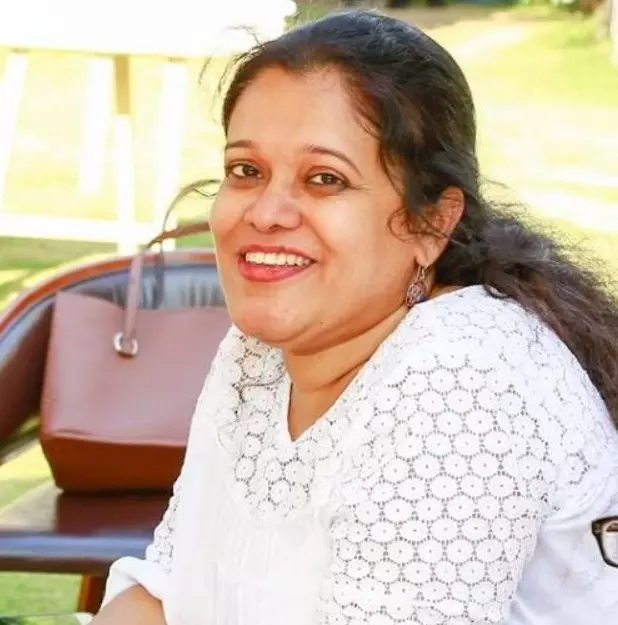From the land of crescent moon

One is a travelogue on a historic and politically vibrant city of Lahore, the other is a nonjudgmental take on the everraging strife at the border and the third is a social commentary on the youth coming to terms with the ways of the world new age literature from Pakistan holds mirror to the dynamics that shape the country
One is a travelogue on a historic and politically vibrant city of Lahore, the other is a non-judgmental take on the ever-raging strife at the border and the third is a social commentary on the youth coming to terms with the ways of the world; new age literature from Pakistan holds mirror to the dynamics that shape the country.
Haroon Khalid’s ‘Imaging Lahore’
Haroon Khalid, who is a journalist and writer has chosen travel writing and justly so in writing about his home, Lahore - the historic city that was witness to nationalistic politics, which was a home for mystics, centre of Sikh religion, favourite city of the Mughals, a city that was known for its syncretic nature and today a dynamic political hot bed that has changed the fortunes of politicians in Pakistan.
Haroon looks at contemporary Lahore struggling to transform into this modern metropolis in the midst of the grit and grime of the modern city life, and in its hurry to develop, passes by the edifices of the past almost abandoning its identity in the process. Yet the history, the stories and legends have their way of entrenching themselves to the present, be it in the form of oral history or a familiar structure, that has been lying in the background and we forget its existence and in its unobtrusive way it stands testimony to the real identity of the city. The author writes about such forgotten structures, popular monuments, mosques, debilitated temples, abandoned gurudwaras, sufi shrines, and travels through the lanes and bylanes of Lahore and relives history.
While the book by author’s own admission does not follow chronological order of events, it engages the reader enough with the story of the Mughals, their love for gardens, Dara Shikoh’s devotion to the sufi saints, Princess Noorjahan, Ranjit Singh’s Khalsa empire, the revered Gurus of Sikhism, the royalty of Lahore that worked with the British, the Progressive Poets movement, the revolutionary nationalism of Bhagat Singh. Lahore remembers it all and through the author’s travels we read these stories and rediscover history through the lens of the city - A history that has so much resonance with the history of India, which is being consciously erased from books and memories.
Anam Zakaria’s ‘Between The Great Divide’
Anam’s book is about the physical division of India and Pakistan – the border that refuses to forget and forgive and caught in the strife are the innocent people on both sides. Pakistan-administered Kashmir or Azad Kashmir, which in India is known as the Pakistan Occupied Kashmir (PoK) and Jammu and Kashmir, which in Pakistan is referred to as Makbooza, India Occupied Kashmir. Just as the line of divide, the topic in itself is sensitive, and the author hence uses a lot of references, interviews and anecdotes to put forth a case while not taking sides.
For many people of Pakistan and India, the news of firing at the border is regular news which they read over a cup of morning coffee, the enthusiasts share a tweet on social media or share their contempt for the enemy country over yet another cup of coffee with friends. But for the people who have their homes near the warring border, it is a part of their lives.
In writing this book Anam went through a lot of conflicting challenges, in gaining people’s confidence, in extracting unprejudiced opinions, and she explains her goal was to bring some ‘Azad’ Kashmiri voices to forefront. From the beginning of the conflict, the book goes back to partition, brings forth the State’s perspective, the temporary ceasefire of 2003 and the present state of affairs and what Kashmiris think, what is their definition of peace and Azadi (freedom).
The author takes the readers to the forgotten people, to the border where when shelling happens bullets reach the courtyards of people; a homeland caught in strife that people came back to in hope of peace after 2003 only to be disillusioned when attempts at peaceful co-existence fell through and the cause of Kashmir now no longer remains Kashmiri. While Anam Zakaria tries to unpeel the State narratives, go beyond the stereotypes and prejudices that the Kashmiris are subjected to, she unveils the misery and helplessness of people who can hardly control what’s happening to their lives and land. Anam could not do as much research in Indian part of Kashmir but had referred to many books written by Indian Kashmiris.
Fatima Bhutto’s ‘The Runaways’
Coming from a political family and affected by the politics of her land (she is niece to former Prime Minister of Pakistan Benazir Bhutto and accuses her aunt and her husband Zardari for the murder of her father), author Fatima Bhutto’s debut book ‘Songs of Blood and Sword’ is a non-fiction, political and biographical in nature.
Notwithstanding the criticism that invariably came her way she made a debut in the fiction world with ‘Shadow of the Crescent Moon’ the story of three brothers and fiery women of the warring North tribal belt of Pakistan and with it she declared she is here to stay and that her writing will be the stories of people of her land and strong women.
Her new book ‘The Runaways’ is about three youngsters – in fact they could have been from anywhere; in this case Pakistan, each strangers’ in their home, and wanting to run away in search of a greater life, a larger destiny. In weaving this story, the author takes the readers from Karachi’s biggest slums to the rich suburbs, from the impoverished lives that bury their identity to make their living to the rich living off the spoils of partition, then to the promised land, London, and to the desert in the mire of war.
Monty and Anita are from different ends of Karachi and yet Monty who has everything money can buy, sees in her what he wants, the feeling of belonging and togetherness that is shattered when she vanishes. His search for her leads him into the middle of the war in the desert. Sunny’s father travels to London to change his life, and all he sees is struggle for existence and craves for acceptance into the new society. He wishes at least his son to become part of the new world.
But Sunny wants more and his love for his cousin Oz. who talks of the greater purpose and religion, and his trust in him leads Sunny to fight the war in the desert where he meets Monty. As the story meets its end, we get to peek into the hearts and thoughts of the youngsters coming to terms with their choices, learning the truth of the world and how to deal with it. Would they truly find their greater purpose, get what they seek, find their identity or just realise the true worth of it all or lack of it?
In a politically volatile and polarised scenario the educated youngsters who see the world through the lens of social media are confused. It is important for them to know history, go back to the roots, and gain an objective view of things happening in the world. The new age literature from Pakistan does just that. It holds a mirror to the country that is caught in contrasts.














